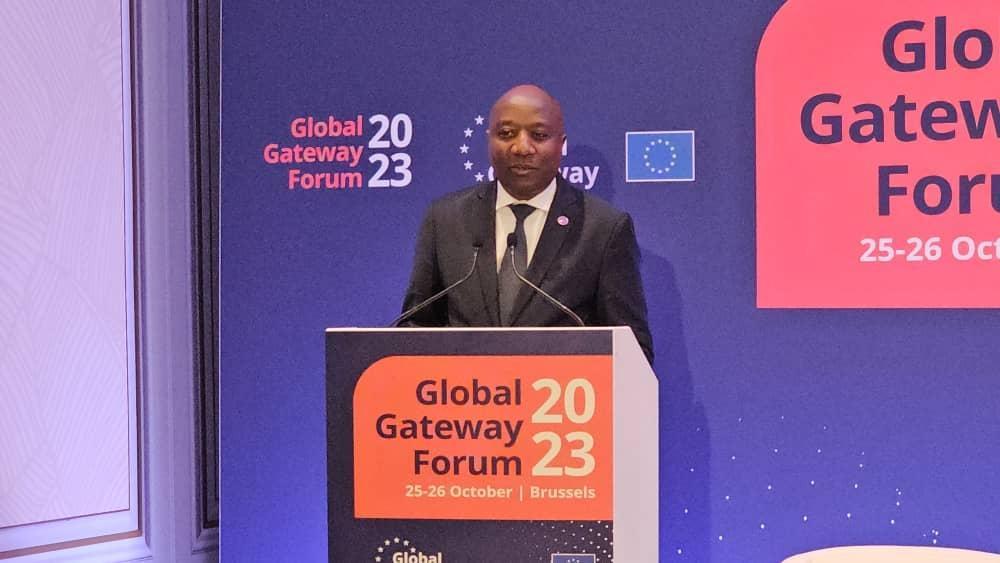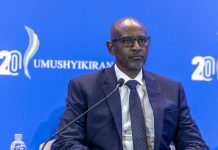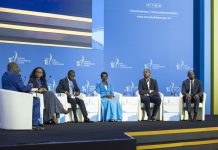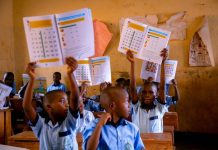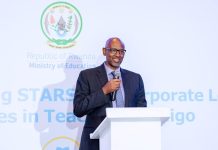Aurore Teta Ufitiwabo
Africa-Press – Rwanda. Prime Minister Edouard Ngirente has said education and research are integral components of the Global Gateway strategy for a green and digital transition.
Ngirente made the statement on October 25 during the opening ceremony of the Global Gateway Forum 2023 taking place in Brussels, Belgium.
“It is important to invest in education, innovation, and research to address current global challenges and pave the way towards a sustainable, green, and digital future,” he said.
During the panel discussion centred on education and research, Ngirente said Rwanda’s participation in the forum serves as a clear testament to the significance attributed to the Global Gateway strategy.
“We believe that through multilateralism, global pressing challenges can be better addressed to promote sustainable development and resilience,” he said.
Transforming the education landscape: Rwanda’s journey and experienceFor nearly three decades, Rwanda has been investing in quality education at all levels.
“This is not just a choice, but also a necessity to achieve sustainable development,” Ngirente shared.
He said recognising that pre-primary education is the foundation of quality basic education, the government is investing in expanding pre-primary education and enrolling children in the Early Childhood Development (ECD) programme.
The programme aims to support the overall development of children in their early years by providing them with access to early learning, good nutrition, hygiene, and protection, he added.
Furthermore, he highlighted that to achieve universal primary education, the country eliminated tuition fees in all primary and lower secondary public schools, and to reduce overcrowding in classrooms and long distances to and from schools, the government embarked on a school construction programme.
He underlined that for instance, in 2020 alone, over 22,500 new classrooms were constructed across the country.
“This has significantly improved the student-teacher ratio in our schools and increased access to schools. Similarly, in order to limit school dropouts and ensure the welfare of learners, we implemented the school feeding programme,” he added.
Ngirente emphasised that to address the challenge of skills mismatch in the labour market, the country made efforts to advance skills development in science and technology, and in Technical Education and Vocational Training (TVET).
Moreover, he added, the country is investing in TVET and skills development to unlock manufacturing potential, facilitate industrialisation, drive sustainable growth, and create jobs.
“Our target is to reach at least 60 per cent of students enrolled in TVETs by 2024 as a proportion of total students in upper secondary,” he said.
Among other aspects, he shared that the country’s teachers benefited from a salary increase in line with improving teachers’ welfare and professional career development.
“This has played a significant role in boosting teacher motivation and commitment to improving the quality of education. In addition, a teachers’ saving and credit cooperative, commonly known as Umwalimu SACCO, was established,” he said.
Regarding research, he pointed out that the country has been promoting research and innovation initiatives.
“In 2018, we launched the National Research and Innovation Fund that serves as a major funding vehicle for research and research-based innovation activities,” he said.
Ngirente also expressed the country’s enthusiasm for its partnership with the Global Gateway in advancing investments in education and research, adding that the country looks forward to continued partnership.
For More News And Analysis About Rwanda Follow Africa-Press

